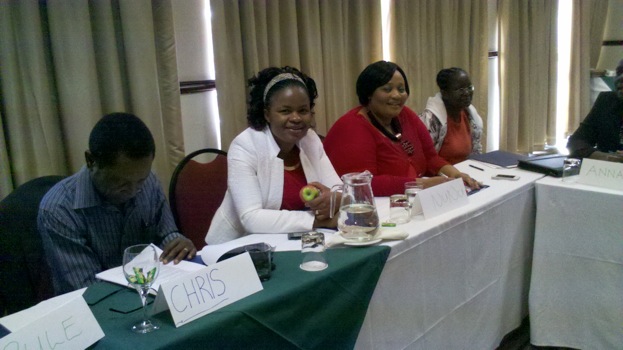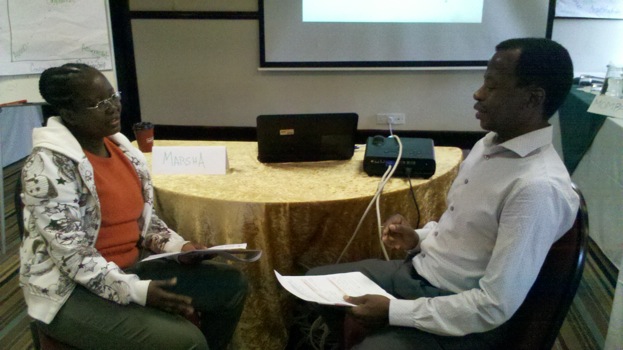Developing Conflict Resolution and Negotiation Skills in Botswana
Categories: Announcements, Capacity Building, Where We Work
To increase the efficiency and quality of health services, the Government of Botswana has launched an ambitious plan to expand public-private partnerships in the health system. As part of these reforms, the Ministry of Health has started to outsource non-clinical services, including laundry, cleaning, food services, and security, at several major hospitals across the country.

A total of 37 senior hospital administrators, contracts managers, and head matrons from seven different hospitals in Botswana, as well as Ministry of Health personnel, participated in the highly-participatory workshop.
Photo Credit: Marsha Slater.
Managing outsourced services at hospitals, however, requires a unique set of skills, including conflict resolution and negotiation. To address the challenges associated with the rapid implementation of outsourcing, USAID through the HFG Project facilitated two highly-participatory workshops on Conflict Resolution and Negotiation Skills for 37 senior hospital administrators, contracts managers, and head matrons from seven different hospitals, as well as Ministry of Health personnel. Both workshops were held in Gaborone in late summer 2014 and led by HFG’s Marsha Slater.
“Too often our approach with our vendors has been adversarial rather than respectful. We need to change that and start treating our vendors as partners and real people who care about their work like we do,” said one mid-level manager.
The consistent message throughout the workshop was how to achieve “win-win solutions” that would work for both the hospitals and the vendors.

Hospital managers practiced negotiation tactics using real case examples. Photo Credit: Marsha Slater.
“Conflicts between [outsourced] vendors and hospital[s] seem rarely to get resolved; issues simmer and the hospitals respond by deducting funds from vendor payments. This creates serious labor relations problems and occasional work-stoppage actions, leaving the hospitals with disturbing security gaps and cleanliness issues that compromise patient, visitor, and staff safety,” said HFG’s Louise Myers who helped to design the workshop after gathering information about the types and nature of the conflicts between hospitals and vendors.
Negotiation practice revealed and reinforced the need for timely two-way communication between both parties, clarity on roles and expectations, give-and-take on the part of both sides, a positive attitude, and validation of one’s assumptions when in doubt.
Participants came away with practical tools and experience resolving differences and, perhaps most importantly, developed an improved attitude toward the vendors and issues that may arise. Evaluations completed by participants indicated a high degree of effectiveness and participant satisfaction: “The workshop has made me understand clearly the issues that contribute to conflict and how to resolve them.” Another commented that, “The workshop has taught me to be open and say out my views but in a manner that the other party will understand.”
Managers agreed to several key action steps in order to strengthen the hospital-vendor relationship, including:
- Hold regularly scheduled meetings between the hospital contracts manager and the vendor site manager to review the vendor reports, identify any areas that need attention, and address any questions/concerns on either side.
- Plan one meeting each month as a joint “walk about” to observe and discuss what is going well and what needs attention.
- Hold periodic meetings between the higher-level hospital manager and the vendor’s general manager.
The Ministry of Health’s five-year outsourcing plan includes extending outsourcing mechanisms to additional health facilities around the country and to clinical areas as well. The HFG Project is supporting the Ministry’s scale-up of outsourcing non-clinical services at tertiary and secondary level hospitals by developing and monitoring the service level agreements and estimating reference costs of laundry, gardening, security, and porter services.



